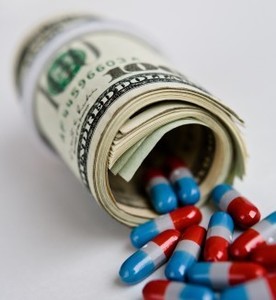Teva Pharmaceutical Industries’ glatiramer acetate drug (Copaxone) is indicated for reduction of the frequency of relapses in patients with Relapsing-Remitting Multiple Sclerosis.
FDA rejects second citizen petition for Teva’s glatiramer acetate drug
Home/Pharma News
|
Posted 04/06/2010
 0
Post your comment
0
Post your comment

Momenta Pharmaceuticals and Mylan have both filed to make generic versions of Copaxone.
In November 2009, the first citizen’s petition submitted by Teva requesting the FDA to block approval of generic versions of its glatiramer acetate drug for treatment of multiple sclerosis was rejected.
Teva maintained that it is not possible for a generic applicant to show that its product has the "same active ingredient" as the drug. "Copaxone has not been fully characterized, and it is unknown which of Copaxone's potentially millions of protein-like polypeptides are clinically active and responsible for its therapeutic effects”.
On 11 May 2010 the FDA rejected a second citizen petition from Teva. In its latest response, the FDA asserted its ‘broad discretion’ in determining whether the submitted information is enough to conclude that the generic product is the same as the original. The agency also stated that it may require a generic company to prove sameness "although we cannot state with any certainty what these criteria may be. A finding of sameness does not, however, necessitate a finding of ‘complete chemical identity’. Thus, the agency may consider other criteria to determine sameness, taking into account the complexity of the active ingredient".
Teva US CEO, Mr Bill Marth, commented that the agency's action was not unexpected. He also stated that it was not an issue at this time since the FDA is not close to approving an ANDA (abbreviated new drug application) for the product. He added that the company plans to have an ongoing dialogue with the FDA on the issue.
This is an interesting twist in Teva’s story, since the company, now the world’s largest generics company, built its’ business based on challenging patents for proprietary drugs.
Related article
Teva again files citizen petition against generic Copaxone
Reference
Regulations.gov
Guidelines
US guidance to remove biosimilar comparative efficacy studies
New guidance for biologicals in Pakistan and Hong Kong’s independent drug regulatory authority
Policies & Legislation
China updates regulations to encourage research and innovation and improved drug safety
Brazil and Mexico forge alliance to streamline medical approvals and boost production
Formycon signs new aflibercept biosimilar pacts and launches ranivisio in Europe

Home/Pharma News Posted 13/11/2025
The best selling biotechnology drugs of 2008: the next biosimilars targets









Post your comment